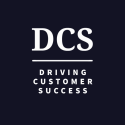10 Reasons Why Companies Need Customer Success Teams
By Nick Mehta
I’ve always longed for an archnemesis. I know that may sound strange, but I’ve seen enough superhero movies to know that every great hero needs an antihero. We all know that Superman isn’t anything without Lex Luthor, and that Batman can’t quit the Joker.
Somehow, I got through 45 years of life with no enemy—no one to push me. And then, a few months ago, after getting texts from friends who had read a new book, I realized I finally had one. It turned out my antagonist was a legendary Dutch billionaire. Yes, Frank Slootman, the GOAT of enterprise software CEOs, having run Data Domain, ServiceNow, and now Snowflake, was my kryptonite!
Let me explain. In his otherwise exceptional book Amp It Up, Slootman has a section about why companies don’t need customer success teams. When the first friend messaged me, “What do you think?” after reading it, my immediate reaction was, “Why you gotta come at me like that, bro?”
Slootman’s argument is basically that customer success is everyone’s job. He says companies should fix the underlying issues that prevent clients from being successful—e.g., product, support, etc.—rather than using customer success management (CSM) as a Band-Aid.
His former chief revenue officer, Dave Schneider, made a similar point on LinkedIn where he writes:
“Do you have a massive customer success organization in your software business? If so, why? You need to leverage a team that focuses on getting the initial sale deployed and it should be called professional services or partners . . . if your product is riddled with issues that keep it from getting deployed that should be solved by your products people, support and engineering. If you are trying to get folks to use more of the depth of your product, use product marketing, webinars, and other low-touch, big-impact tools. Salespeople want to expand the deals they sold as they spent months building the initial relationship. Hold your sales team responsible for down sells and churn.
Your entire company is in customer success, not a department. The shame of it is the companies with seemingly the biggest customer success teams have the highest churn. Don’t build a new team to solve the symptom of your product and your value proposition.”
While I agree with the point about fixing underlying issues, Slootman’s view reflects a dated perspective around the future of software.
That’s a bold claim for me to make. I’m a nobody by comparison. He’s the Michael Jordan of software and his teams are the six-peat Bulls. I’m just a middle school kid on the playground. But I’ll still share 10 reasons why I’m right.
10 reasons why companies need customer success teams
1. Many customer success teams now own revenue
Our recent Customer Success Index report revealed that 45% of customer success teams actually own the SaaS renewal. And 17% (and growing) own smaller expansions. Clearly, these teams drive value. And having sales reps own renewals for most segments is inefficient and ineffective.
2. Clients expect the vendor to drive the outcome
In the old world, customers bought software and it was their job to figure out how to get value. Nowadays, the SaaS model puts that responsibility squarely on the vendor’s shoulders. Customer success teams are at the tip of the spear of driving value.
3. Partners aren’t always the full answer
Slootman’s colleagues might retort, “That’s the job of partners like Accenture.” While I think system integrators (SIs) still have a big role, I’ll respond with two counters:
First, the SaaS model allowed technology to be delivered beyond the Global 2000 to smaller and mid-sized businesses. These companies largely can’t afford nor do they need big SIs; they expect the vendor to deliver the value as a part of the subscription.
Second, even when a partner is involved, they are fundamentally measured on professional services margin. Only the vendor is on the hook for the outcome, also known as the subscription renewal. As such, many companies have partner success managers now who ensure outcomes for partner-managed engagements.
4. Product isn’t always the full answer
Another response might be “make the product better”—to which I say, heck yeah! But in many categories, the outcome is fundamentally about more than the product. Outcomes require change management, process evolution, and governance. In short, outcomes require things that involve people.
It’s true that in some highly technical products, the product might equal the outcome. But in many categories—from marketing tech to human resources tech to vertical software—the outcome is MUCH more than the product.
5. Customer success management improves products
Going back to the point of improving the product, one of the biggest values of CSM teams is to help find the issues in the rest of the company and help fix them. Product is first and foremost here.
Obviously, product managers are always trying to improve their offerings. But because they’re not entirely focused on success plans, they can miss the context behind a feature request or feedback string. CSMs give product managers the deeper insights they need to build great products.
6. Sales is part of customer success, but it can’t do it all
Customer success starts in sales—full stop. The best companies have salespeople who understand clients’ desired business outcomes and then hand them off to the post-sales team.
But salespeople cannot simultaneously spend enough time with clients post-sales to drive outcomes and continue to close new business. In addition, the mindset is radically different.
7. Support isn’t the final answer
Customer support is critical in software—it always has been. But it’s a fundamentally reactive process. Even the word implies doing things when the client asks.
Customer success teams don’t wait for the customer to reach out. They are constantly monitoring signals to understand how the client is doing in terms of driving outcomes—and proactively engaging to get them there.
8. Is everyone in sales too?
The main argument that “this is a company-wide thing” could be also applied to sales. Indeed, thousands of enterprise software CEOs over time have started sales kickoffs with the cliché that “everyone in our company is in sales.”
If that’s true, why do we need salespeople?
9. Thousands of companies can’t be wrong
According to our CS Index, 95% of tech companies now have CSM teams. More powerfully, in our recent survey of SaaS CEOs, 82% of executives and 84% of investors said that while they are cutting other areas, they don’t plan to cut CS, despite the downturn.
10. We’re not all Michael Jordan
Frank Slootman’s genius is partially picking companies that have products with an extremely natural product-market fit. Snowflake is the extreme version of this; its business model naturally grows with consumption. It’s, as the name describes, a unique business. Most companies just aren’t like Snowflake. And most CEOs aren’t like Slootman.
Customer service management and your company
Clearly, everything in Amp It Up has worked for Slootman. But just because it has worked for him, doesn’t mean it will work for you.
I’ll continue studying him and learning from everything else he does. And I’ll continue ignoring his one piece of bad advice. He may not be the archnemesis we deserve, but he’s the one we need right now.
*************
Post by: Nick Mehta
Nick Mehta is the CEO of Gainsight, the platform that helps companies of all sizes and industries drive durable growth through customer-led and product-led strategies. Gainsight is a five-time Forbes Cloud 100 recipient, and Nick has been named one of the top SaaS CEOs by The Software Report four times, Entrepreneur Of The Year for Northern California by EY in 2020, and has a 99% approval rating on Glassdoor. Nick is a member of the board of directors at F5 (NASDAQ:FFIV), and has co-authored two books—Customer Success and The Customer Success Economy. He is passionate about family, football, philosophy, physics, fashion, feminism, parody music videos, and SaaS. People have told him it’s impossible to combine all of those interests, but Nick has made it his life’s mission to try.

Hakan Ozturk
Founder, theCScafe.com, #1 Weekly Customer Success Newsletter
Hakan Ozturk is a Paris-based Customer Success leader with over 15 years of experience in the computer software industry. Passionate about driving growth and delivering value to strategic customers, Hakan has established himself as a trusted industry expert. As the Founder of The Customer Success Café Newsletter and TopCSjobs.com, Hakan provides valuable industry insights and daily-updated job opportunities worldwide in the field of Customer Success. Connect with Hakan to boost your career in CS and your company’s potential for massive growth.

Leave a Reply